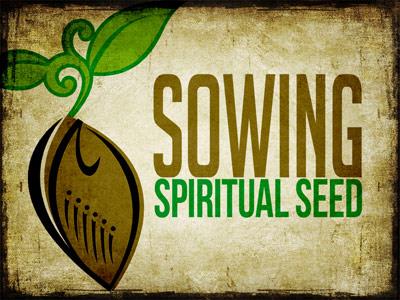-
When The Kingdom Seems Unimpressive Series
Contributed by Jim Butcher on Nov 19, 2025 (message contributor)
Summary: The parable of the mustard seed and the parable of the yeast point us to a truth that's uncomfortable at first: the Kingdom might not look that impressive the first time you look at it.
UNIMPRESSIVE: Jesus acknowledges that many will initially see the Kingdom as insignificantly small.
- Luke 13:18-21.
- Matthew 13:31-33; Mark 4:30-32.
- I guess you could say that sometimes we hype up Jesus and His Kingdom too much.
- “Who wouldn’t want this?”
- “It’s so obviously true and great!”
- “You’d have to be blind to not see what Jesus is doing here.”
- It’s interesting to read these very brief parables and realize that Jesus doesn’t agree with us.
- Jesus acknowledges that the Kingdom is probably not going to overwhelm you right off the bat.
- This, of course, stands in contrast to much of the way the world operates. It’s a “grand opening.” We’re having a “blowout” to open this store. We’ve got to have a great website when people look us up. We like good P.R. and first impressions are a big deal, so we want people to be impressed immediately.
- In contrast, Jesus here freely acknowledges that the Kingdom might not be especially impressive at first sight. In fact, He goes much further than that - He says that you are likely to think it’s insignificantly small at first.
- What does that mean when we get down to the details? Let’s dig in.
WHAT DOES THAT ACTUALLY LOOK LIKE?
- On each of these parables, I want to focus on what I think is the biggest, most significant application of that truth. I concede there might be other ways to apply these truths, but I feel on solid ground that these are the main ones.
1. MUSTARD SEED: Unqualified disciples and a small crowd in an upper room.
- Luke 6:12-19; Acts 1:12-15.
- The most significant application of the mustard seed parable is the start of the church.
- Look with me at Luke 6:12-19. This is not an impressive, well-qualified group of individuals. It’s a ragtag collection.
- Look with me at Acts 1:12-15. In some ways, this is even more discouraging. Here we have the group gathered at Jesus’ instruction after His Ascension. Think of His ministry: all that Jesus did, all the miracles, all the teaching, all the conversations. After all that, how many people would we presume would be gathered together to be present for the ushering in of the church era? 500? 1,000? 10,000? 50,000? How about 120? What? 120? Only that many? It’s wild to think about how small that number is.
- Looking at both of those passages it would be understandable to be massively underwhelmed. These are the disciples who are going to change the world? Come on. This is all we’ve got to start the church with? Come on.
- It is helpful to know that Jesus called it ahead of time. The mustard seed parable points us directly there. Look at it again. The parable speaks of a tiny, insignificant seed that is planted. Nothing impressive there. But it grows and grows and becomes a solid, sturdy tree where birds nest. Not a start to be impressed by, but the outcome was great.
2. YEAST: An unseen Spirit enters your heart.
- Luke 8:4-8, 11-15; John 3:5-10.
- Now let’s look at the second parable.
- I think the most significant application of the parable of the yeast is the Holy Spirit entering the heart of a new believer.
- Look with me at John 3:5-10. In this famous conversation with Nicodemus that gives us the most well-known verse in the Bible, we see earlier in their talk discussion of the Holy Spirit. Jesus speaks of the mysterious movement of the Holy Spirit, likening Him to the wind. I think this is a situation where we can sympathize with Nicodemus. Among the three members of the Trinity, it’s the Holy Spirit we struggle the most with. How are we to understand Him? Where are we to see Him? How are we to yield ourselves to Him? It’s a source of confusion and uncertainty for most Christians.
- Look with me at Luke 8:4-8, 11-15. This is the parable of the four soils. This is an important parable for understanding the expectation of fruitfulness that Jesus has on the lives of Christians. (That expectation is a different sermon but important to understand.) The bottom line for his moment is that the normal Christian life should produce an overwhelming harvest of fruitfulness. That's something that is intended to be a typical result.
That creates panic in many people. How do I manufacture those results? You don’t have to. It's the Holy Spirit’s job to bring those results. In John 15 we are taught by Jesus that as we obey His teaching we will abide in His love and then as we abide in His love we will abound in fruitfulness. Our job is simply to obey the teaching of Christ as faithfully as we can and then allow the Holy Spirit to organically produce the spiritual fruit.

 Sermon Central
Sermon Central



